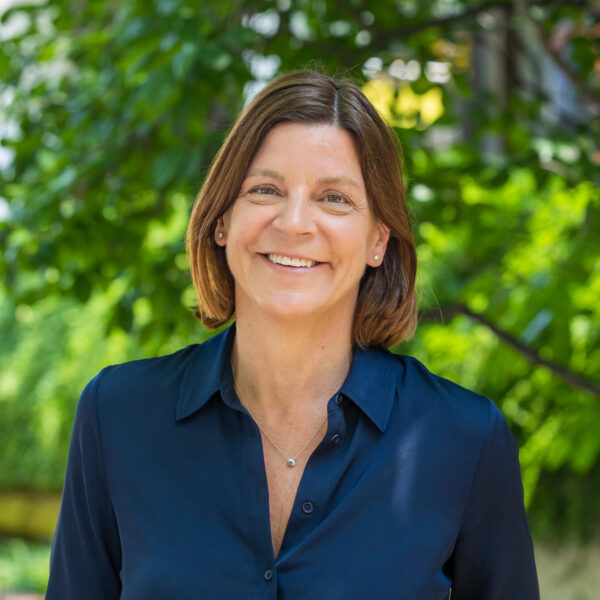Today, 28 September, we commemorate the International Day for Universal Access to Information, a declaration by UNESCO emphasizing that seeking, receiving and sharing information constitutes a fundamental right, that holds the key to empowerment, informed decisions, and societal progress.
In this September edition of the ISC Open Science Roundup, Heather Joseph explores the pivotal role of Open Science in achieving this universal access to information, while Moumita Koley provides the latest news and opportunities to keep you updated with everything happening in the world of Open Science.
Op-ed
Reflection on the 2023 UN International Day of Universal Access to Information: Sharing knowledge is a human right; everyone, everywhere should have the unfettered ability to access, contribute to, and benefit from it. The free flow of ideas and information is essential to advancing the well-being of societies.
This is particularly critical when it comes to science. We conduct scientific research to accelerate discovery, fuel innovation, and to enhance our collective understanding of the world we inhabit. We also do science to develop practical interventions and help solve the world’s most complex and pressing problems – from addressing climate change to combating poverty or preventing future pandemics.
To do this effectively, we can’t conduct science in silos – we must do it in a way that is intimately integrated with the global community it is intended to benefit. This means opening the processes of conducting research to the widest possible set of contributors, as well as ensuring that the public can quickly and easy access and benefit from its results.
Open science promotes collaboration and provides a strong foundation for turning research outputs into actionable information to improve the health and well-being of the public. It removes barriers to contributing to scientific inquiry, ensuring a that diversity of voices enrich our global intellectual conversation. And it helps to democratize access to information, providing a critical building block for a robust knowledge society.
As we mark today’s United Nations International Day of Universal Access to Information, we should individually commit to reflecting on the ways that our work advances these goals. We each have a responsibility to make sure that our work contributes to building systems that are structured to optimize the most efficient sharing of scientific knowledge possible: they must be both open by default, and equitable by design.
Heather Joseph
Executive Director of SPARC
Heather Joseph is the Executive Director of the Scholarly Publishing and Academic Resources Coalition (SPARC) – an international coalition of academic and research libraries promoting the open sharing of knowledge. Under her stewardship, SPARC has become the leading advocacy organization promoting innovative open and equitable global systems of research and education. Based in Washington, D.C., she leads SPARC’s strategy and policy work, which led to the establishment of the landmark 2022 White House OSTP Memorandum requiring open access to all U.S. federally funded research outputs. She is a widely respected expert on national and international open research policies, practices and implementation strategies.
Big stories in Open Science
G20 Members Emphasize Global Collaboration for Open Access to Scientific Knowledge
- The G20 Chief Science Advisers‘ Roundtable Meeting was held on 28 August, and the members emphasized the urgency of providing immediate, universal access to publicly funded scholarly scientific content. They advocate for international collaborations to fortify national ambitions and innovation and the synchronization of open and public access policies, ensuring they align with universal human rights, academic freedom, and intellectual property rights.
ACS Introduces Zero-Embargo Green Open Access with New Article Development Charge of USD 2,500
- From October 1, 2023, the American Chemical Society (ACS) Publications Division is set to offer authors a zero-embargo green open access option, enabling the immediate posting of accepted manuscripts with a CC BY license to open repositories. To facilitate this, ACS has implemented an article development charge (ADC) of $2,500 USD, payable once the manuscript is sent for peer review. This ADC ensures authors can adhere to zero-embargo green open access mandates.
Forte Becomes First Swedish Research Council to Sign the Diamond Action Plan for Open Access
- Forte has taken a significant step in supporting open access to scientific content by becoming the first Swedish research council to sign the Diamond Action Plan (DAP). Developed by global organizations, including Science Europe and cOAlition S, the DAP promotes free publication and reading of scientific journals. So far, 125 organizations and 145 researchers have signed the plan.
OAA’s Open Data Initiative Now Offers Over 24PB of Free Environmental Data on Major Cloud Platforms
- The National Oceanic and Atmospheric Administration (NOAA) makes environmental data publicly and freely available. The NOAA Open Data Dissemination (NODD) program has expanded its reach, offering vast environmental datasets on Amazon Web Services (AWS), Microsoft Azure (Azure), and Google Cloud Platform (GCP). The data, encompassing satellite imagery to climate records, is freely accessible to anyone with an internet connection.
Crossref Incorporates the Retraction Watch Database, and Now it’s Completely Open
- In a collaborative move to enhance scholarly transparency, Crossref has acquired the Retraction Watch database, making it a publicly accessible resource. This synergy will enable the ongoing population of the database by Retraction Watch to be more sustainable, ensuring that retractions are consistently up to date. By merging their capabilities, the partnership will offer the largest open-source retraction database, streamlining efficiency and transparency for the global academic community.
DEAL Consortium and Elsevier Announce Open Access Agreement
- In a significant move to promote open science, the DEAL Consortium, representing the German research institutions, and Elsevier, a global leader in scientific information and data analytics, has announced a landmark open access agreement for Germany, slated to run until 2028. This collaborative pact enables German researchers to publish articles with instant open access in Elsevier’s journals while also allowing reading access to Elsevier’s vast portfolio on ScienceDirect.
5-Year of Plan S: A Journey of Open-Access
- Plan S is marking its fifth anniversary on 4th September. The Plan S, an open-access initiative launched by 12 European funding agencies and supported by the European Commission, was designed to ensure immediate access to scientific publications. Plan S has grown significantly over the years; however, despite gains, challenges remain – with 61% of the four million annual scientific papers still behind paywalls.
Leiden University to Launch Open-Source University Rankings in 2024
- Leiden University’s Centre for Science and Technology Studies (CWTS), which publishes university rankings, has unveiled plans for Open-Source University Rankings in 2024. Announced at an event at the Curie Institute in Paris, the new ranking system will prioritize open data and algorithms to address current challenges like opacity and limited assessment angles in existing methods. This shift towards open source is anticipated to foster a wider discussion on fundamental scientific values.
De Gruyter Expands ‘Subscribe to Open’ Model for Broader Open Access Transformation
- De Gruyter, a leading academic publisher, is scaling up its adoption of the Subscribe to Open (S2O) model to transition approximately 85% of its 320 subscription journals to Open Access by 2028. Unlike the prevalent APC model, which levies article publication fees, S2O allows continuous journal subscriptions while making them openly accessible and free for authors.
DOAJ and Lyrasis Forge Announced Partnership to Boost Library Support for Open Access
- In a notable step toward promoting Open Access in scholarly research, the Directory of Open Access Journals (DOAJ) and Lyrasis have announced a partnership, enabling U.S. libraries to support DOAJ financially. Both entities, committed to democratizing access to information, aim to bolster the visibility and accessibility of Open Access research. This collaboration paves the way for libraries to champion a more transparent scholarly ecosystem.
NASA Joins Hands with Center for Open Science for the Ambitious ‘Year of Open Science’ Initiative
- In an endeavor to promote transparent scientific research, NASA collaborates with the Center for Open Science (COS) and 16 other organizations for the ‘Year of Open Science‘. The multi-pronged initiative focuses on strategies for open science, ensuring equitable participation, incorporating open science in evaluations, and engaging underrepresented communities. This collaboration will pave the way for numerous working sessions, with a flagship conference in 2024 highlighting the achievements and future plans.
cOAlition S, Jisc, and PLOS Establish Multi-Stakeholder Group for Equitable Knowledge-Sharing
- In a collaboration aimed at promoting equitable knowledge-sharing, cOAlition S, Jisc, and PLOS have announced the formation of a diverse, multi-stakeholder working group. Comprising representatives from global funders, publishers, and libraries/library consortia, the group seeks to identify business models that support a more inclusive publishing paradigm.
eLife Streamlines Submission Payment Process with a New System, Backed by HHMI
- eLife, aiming to innovate open-access publishing, has rolled out a system to streamline payment processes for authors submitting preprints to its new publishing model. Initially available to major contributors from Howard Hughes Medical Institute (HHMI) labs, the system removes the need for authors to handle fee invoices, letting them focus solely on their work submission. Following its successful collaboration with the Max Planck Society, eLife is now working with HHMI to enhance the publication experience, with plans to extend this system to other research institutions soon.
Scopus Unveils ‘Author Position’ Metric to Support Research Impact Assessments
- Scopus, the abstract and citation database owned by Elsevier, has introduced a groundbreaking ‘Author Position’ metric on its Author Profile page, aimed at enabling researchers to represent their contributions and performance more accurately. This metric considers the specific position of an author in multi-authored papers, such as first author, last author, and corresponding author. However, users should be aware of some limitations, such as the alphabetical listing of authors in disciplines like physics and mathematics.
Open Science events and opportunities
Job opportunities
- DORA is looking for a Science Policy Associate. This position is remote part-time (up to 20 hours per week; $20 USD per hour) for six months. Applications will be reviewed on a rolling basis starting 5 September.
- The University of Strathclyde is seeking to appoint an Open Repositories Manager to join the Scholarly Publications & Research Data (SP&RD) team. The closing date for application is 1 October.
- The University of Tennessee, Knoxville (UTK) is seeking a librarian to join the Research Impact and Open Access team. More information about the position can be found here. Review of applications will begin on 9 October.
- The University of Maine is looking for an Open Scholarship Librarian. The review of the application will begin on 28 October.
Our top ten Open Science reads
- Open Science: Up for a challenge?
- Global Movement to Reform Researcher Assessment Gains Traction
- Why Article-Level Metrics are Better Than JIF If You Value Talent Over Privilege
- Wikipedia as a Tool for Contemporary History of Science: A case study on CRISPR
- Scholarship Should be Open, Inclusive and Slow
- Why should researchers publish all their research outputs using diverse article types?
- Is Sustainability Research the Victim or Saviour of a Broken Academic Publishing System?
- Open Science is More Open in Some Places than Others
- Knowledge Exchange Analysis Report on Alternative Publishing Platforms
- Open Access Doesn’t Need APCs: Alternative models continue to grow in 2023
Disclaimer
The information, opinions and recommendations presented by our guests are those of the individual contributors, and do not necessarily reflect the values and beliefs of the International Science Council.
Photo by vackground.com on Unsplash.

